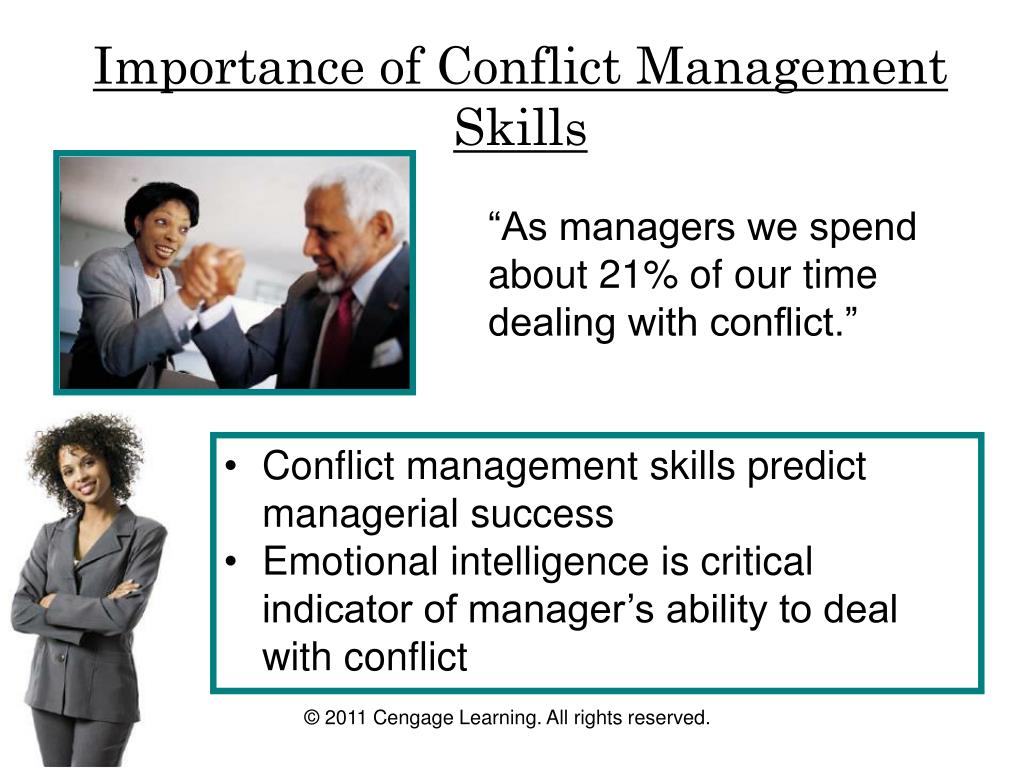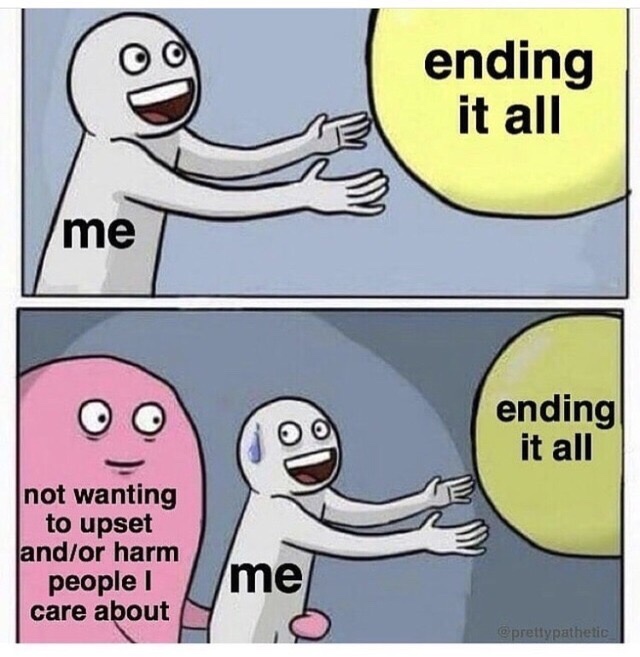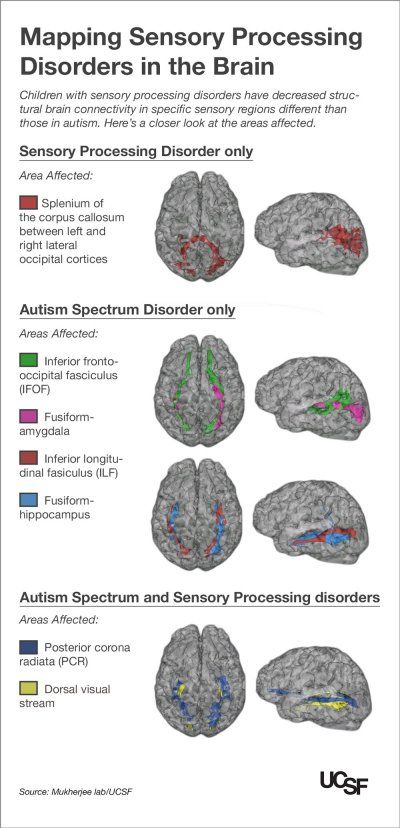Lies destroy families
6 Big Mistakes That Destroy Family Relationships
Family should be a person’s first source for love, acceptance, and support. Unfortunately, many extended families are failing miserably as the people within the family do things to undercut family unity. Understanding the problem is the first step in finding a solution.
6 things that destroy extended family include:
1. Insults and Criticism
Words carry weight. In some cases they can carry the weight of the world. When unkind words are said to family, they hurt. Your family is supposed to be your source of encouragement and support. Negative words damage the core of family relationships. Some family members may say things off the cuff and think that because these things were said casually, they don’t hurt the other person. The truth is that such words hurt, however they are said. When negative words are spoken to family members it creates a chasm in the relationship. It takes time and positive interactions to repair the harm that is done when insults, criticisms, and jabs take place.
When there is any outpouring of these negative words to a family member the chasm can grow so great that it can almost seem beyond repair. Any relationship can be resolved with apologies and forgiveness, but the hurt can still remain long after words are exchanged. Be careful with your words. Remind yourself that as family you are there to be one another’s greatest supporters in life. Tearing others in the family down with words is destructive to the family unit. Keep the old adage in mind when speaking to your family “if you don’t have something nice to say, don’t say anything at all”.
⌄ Scroll down to continue reading article ⌄
⌄ Scroll down to continue reading article ⌄
If there are people in your family who have problems with words, then set the example and set it strong. Use words that encourage and uplift family members. Doing so makes you a person that others want to be around. People don’t want to be around people who make them feel bad.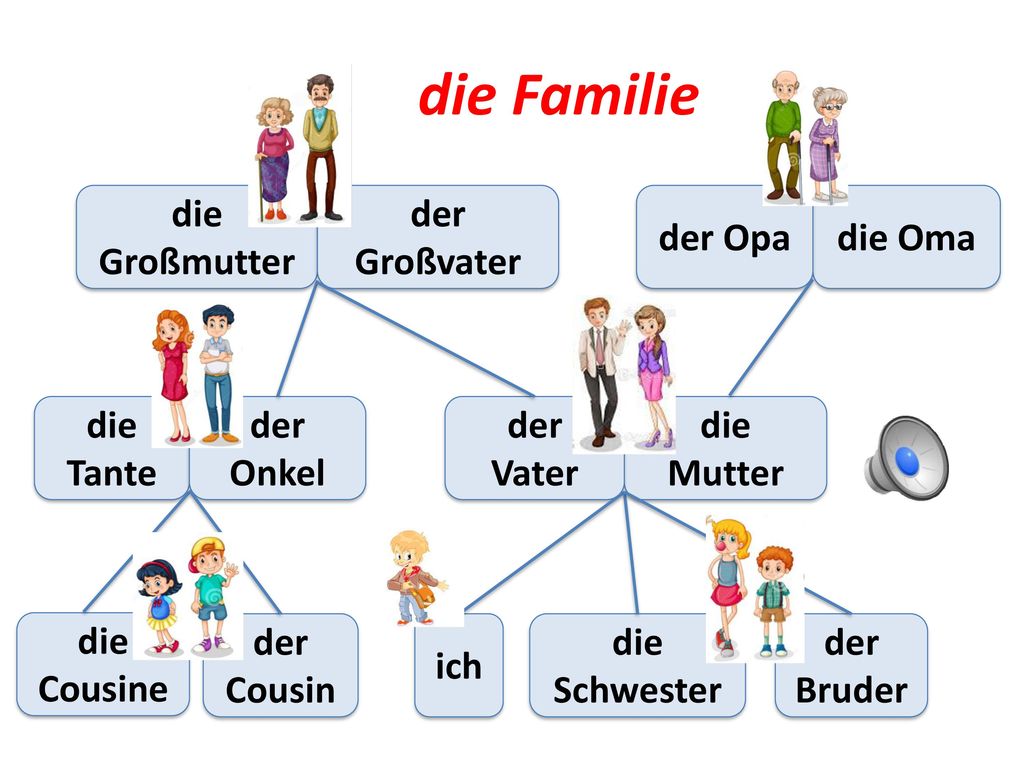 They want to be around those who make them feel good about themselves. Help your family by looking for the positive in each and every person, so that you can set the example of using words that uplift fellow family members.
They want to be around those who make them feel good about themselves. Help your family by looking for the positive in each and every person, so that you can set the example of using words that uplift fellow family members.
2. Gossip
Gossip is very damaging. Most often gossip occurs when someone is upset by something related to the person they are gossiping about. It may make a person feel better temporarily, but in the end it does not solve the problem as the gossip itself is certainly not done out of kindness or love. If you have a problem or issue with someone in the family then go to them directly. You don’t need to announce your issue in front of the whole family. Some people do this to force family members to choose sides in a situation .
When sides are taken, there is a divide in the family. Instead, go to that person privately with whom you have a problem. Discuss the issues, but do so with the the goal of reconciliation. Doing so with hardness in your heart or wanting to attribute blame won’t solve the problem.
Voice your concerns in a manner that helps them see things from your perspective. That way they may better want to heal the relationship and rectify any wrongs. Don’t talk badly about family members behind their back. If they have some drama in their life and it has nothing to do with you, then don’t spread their stories around. Tell yourself “not my monkeys, not my circus”.
⌄ Scroll down to continue reading article ⌄
⌄ Scroll down to continue reading article ⌄
3. Lack of Inclusion
An Ask Amy article was posted online that clearly puts family inclusion into perspective. Here is that wonderfully articulated response from Amy Dickinson of the Chicago Tribute:
Inclusion of family members is essential to family unity. Include all family members at family functions. Even if you “know” they are going to say no. Ask anyway. The hard feelings come because of failure to ask and failure to include. It is up to them whether they attend whatever function or trip you are inviting them to, but the most important part is that they are asked. If your goal is family unity and love among all members, then include all members in family gatherings and functions. Don’t find excuses to not include, as that is wrong and will create hard feelings.
It is up to them whether they attend whatever function or trip you are inviting them to, but the most important part is that they are asked. If your goal is family unity and love among all members, then include all members in family gatherings and functions. Don’t find excuses to not include, as that is wrong and will create hard feelings.
4. Deception and Lies
Deception in a family is destructive. The truth always prevails. Sometimes it may take years or even a generation for the lies and deceit to become known, but know that they will come to light someday. If you can’t be honest with your family, who can you be honest with?
⌄ Scroll down to continue reading article ⌄
⌄ Scroll down to continue reading article ⌄
Lying to family or using deception to keep secrets leads to brokenness in a family. This brokenness comes from trust being corroded. The bigger the lie, the bigger the corrosion. Some lies, such as secret children born from an affair, can create insurmountable corrosion that will leave a family damaged for generations.
Some lies, such as secret children born from an affair, can create insurmountable corrosion that will leave a family damaged for generations.
Your actions have consequences. Not just to you, but to your extended family for generations to come. It is much better to admit your wrong doings and work toward healing, than to lie and work to carry that lie around indefinitely (or until you are found out). Don’t burden yourself with lies. Be open and honest with your family. If you have done something that is hurtful to family members, then you need to apologize and make an effort to rectify the situation for the sake of family unity. Trying to hide the truth only compounds the hurt. The longer the truth is hidden, the more compounded the hurt.
5. Failure to Accept Differences
Children who grow up in the same home with the same parents, same discipline, and same guidance do not turn out to be the same exact adults as their siblings. We all have differences. Allow others to be different. Just because you are family doesn’t mean you have to share the same political views or even the same religion.
Just because you are family doesn’t mean you have to share the same political views or even the same religion.
People will grow up and have different parenting styles and lifestyle choices, but it is not the job of family members to judge. Love and acceptance starts in the family. If a family is not providing this to one another, then they are fundamentally failing as a family.
⌄ Scroll down to continue reading article ⌄
⌄ Scroll down to continue reading article ⌄
If you choose to put a foothold in the differences and create family strife because of differences, then the extended family unit is ultimately damaged. Accept people for who they are and for where they are in life. Acceptance of a person for who they are, is the ultimate form or love.
6. No Apologies and No Forgiveness
Apologies and forgiveness are the glue that keep a family together. Nobody is perfect. At some point in time you will hurt a member of the family. It is up to you to say the words “I am sorry for…”. Those words can heal wounds and create a stronger family bond. When you apologize to a family member, the message you are sending to the person is that they matter and that you don’t want ill feelings between you and them.
It is up to you to say the words “I am sorry for…”. Those words can heal wounds and create a stronger family bond. When you apologize to a family member, the message you are sending to the person is that they matter and that you don’t want ill feelings between you and them.
Not apologizing, is sending the message that the person does not matter or that their feelings don’t matter. Failure to apologize is a personality flaw and weakness of character. Be the bigger person and apologize when you do something wrong against a family member, whether your words or actions that hurt the person were intentional or not does not matter. What matters is that the apology takes place. You can explain intentions, but you can’t make someone unfeel being wronged.
When someone apologizes, be a gracious forgiver. Families need one another. Don’t hold grudges, as that is a burden to you and it harms the family. Forgive and show your forgiveness with your actions as well as your words. This means that if you forgot to invite a family member to a birthday celebration, then ask for their forgiveness and offer to do something to make it up to the family member like taking him or her to lunch. Actions speak louder than words, so make your apology count by making your actions parallel a heartfelt apology.
Actions speak louder than words, so make your apology count by making your actions parallel a heartfelt apology.
⌄ Scroll down to continue reading article ⌄
⌄ Scroll down to continue reading article ⌄
How Secrets and Lies Destroy Relationships
Source: Dean Drobot/Shutterstock
Trust is fragile. Secrets and lies jeopardize trust and can damage us and our relationships — sometimes irreparably.
We all tell “white lies.” We say, “I’m fine,” when we’re not, compliment unwanted gifts, or even fib that “The check is in the mail.” But in an intimate relationship, emotional honesty includes allowing our partner to know who we are. Honesty is more than simply not lying. Deception includes making ambiguous or vague statements, telling half-truths, manipulating information through emphasis, exaggeration, or minimization, and withholding feelings or information that is important to someone who has a right to know, because it affects the relationship and deprives that person of freedom of choice and informed action. Although we may consider ourselves honest, few of us reveal all our negative thoughts and feelings about the people we are close to. It requires courage to be vulnerable and authentic.
Although we may consider ourselves honest, few of us reveal all our negative thoughts and feelings about the people we are close to. It requires courage to be vulnerable and authentic.
The Cost of Secrets and Lies
Most people who lie worry about the risks of being honest, but give little thought to the risks of dishonesty. Some of the ways in which lies and secrets cause harm are:
1. They block real intimacy with a partner. Intimacy is based on trust and authenticity — the ability to be vulnerable or “naked,” not only physically, but also emotionally.
2. They lead to cover-up lies and omissions that can be hard to remember. These mount up, and if the truth comes out, it may be more hurtful than the original secret. The longer the truth is hidden, the greater becomes the hurdle of revelation, for it would bring into question every instance of cover-up and all times the innocent partner relied upon and trusted the betrayer.
3. The secret holder feels guilty, or at least uncomfortable, during intimate moments with the deceived person. Closeness and certain topics tend to be avoided. Avoidance may not even be conscious and can include things like being preoccupied with work, friends, hobbies, or addictive behavior, and doing activities that leave little opportunity for private conversations. The deceiver might even provoke an argument to create distance.
4. Honesty is valued as a moral norm, although the context and specifics may differ among cultures. When we violate religious or cultural norms by hiding the truth, we experience anxiety generated by guilt. Despite our best efforts at hiding, our physiological reaction is the basis for electronic lie detectors.
5. This violation of our values not only leads to guilt; it also affects our self-concept. Over a long period, deception can eat away at our self-esteem. Ordinary guilt that could be reversed with honesty now becomes shame and undermines our fundamental sense of dignity and worthiness as a person. The gap between the self we show others and how we feel inside widens.
6. Our ways of managing guilt and shame create more problems. We hide not only the secret but more of who we are. We might build resentments to justify our actions, withdraw, or become critical, irritable, or aggressive. We rationalize our lie or secret to avoid the inner conflict and the danger we imagine awaits us if we come clean. Some people become obsessed with their lie, to the point that they have difficulty concentrating on anything else. Other people are able to compartmentalize their feelings or rationalize their actions to better manage dishonesty. Compartmentalization and denying, rationalizing (“What my partner doesn’t know won’t hurt him/her”), or minimizing (“I only did it once”) are psychological defenses that help us deal with inner conflict and an undesirable reality. They can be so effective that the liar is convinced that lying supports the relationship. He or she may not want to face the hurt or choices that the truth could precipitate.
7. Not surprisingly, beyond mental distress, research reveals that lying leads to health complaints.
8. The victim of deception may begin to react to the avoidant behavior by feeling confused, anxious, angry, suspicious, abandoned, or needy. They may begin to doubt themselves, and their self-esteem may suffer. Often, victims of betrayal need counseling to recover from the loss of trust and to raise their self-esteem.
What to Reveal
Opinions vary on how much “truth” others need to know. In some cultures, there’s a tacit understanding that infidelity is almost expected — as long as the adulterer is discreet. Mores change over time: Homosexuality and transsexuality, once taboos, are now more openly accepted and discussed. Similarly, having unmarried parents or being adopted were once kept secret or only revealed when the child was older. Such jarring revelations could be traumatic, yet also explained confusing anomalies in a child’s mind. Today, many families opt for open adoptions instead.
We have a right to information about our heritage, particularly for medical reasons. Secrets about things such as addiction, criminality, and mental illness can lead to real risks, along with chronic shame and family dysfunction. Children already “know” something’s wrong, but denial undermines their self-trust and reality testing.
In a sexual relationship, we have a right to know our partner’s intentions and fidelity for emotional as well as medical reasons. Often, faithful partners rationalize or deny this need and their vulnerability to their emotional detriment. By not asking questions or expressing their needs, they enable and collude in deception for the same reason that the betrayer is dishonest or secretive — to not rock the boat and jeopardize the relationship. When there’s been betrayal, even if the couple stays together, seeds of distrust linger and sometimes poison the relationship.
On the other hand, we also have a right to privacy. Even in the most intimate relationship, disclosure of conversations with our therapist, close friends, and relatives should be discretionary.
When and How to Reveal
What, when, why, and how we disclose are all essential factors. The timing, impact, and our motives should be carefully considered. Full disclosure may be necessary to rebuild a broken marriage. Studies also show that people who have good self-esteem and a high opinion of their partner are more likely to forgive him or her. However, what are the compelling reasons to reveal an affair that’s long over or a current one that we have no intention of ending? In the first case, is it to deepen mutual intimacy? In the latter, is it to avoid it or provoke a divorce that we’re afraid to initiate? Disclosing our dissatisfaction in the relationship might be the necessary conversation that, if communicated earlier, would have prevented the affair.
For everyone involved, the pain of the secrecy compounds the pain over the initial event, and the longer the deception continues, the more damaging it is to self-esteem. Ideally, before revealing the truth to the person we’ve lied to, it’s helpful to have accepted our mistakes; otherwise, our shame and guilt can be obstacles to genuine empathy for the person we’ve harmed. First, talk to someone nonjudgmental whom you trust, or seek counseling. If we’ve forgiven ourselves, we’re in a better position to answer questions and face the anger and hurt feelings that we’ve caused.
Ideally, before revealing the truth to the person we’ve lied to, it’s helpful to have accepted our mistakes; otherwise, our shame and guilt can be obstacles to genuine empathy for the person we’ve harmed. First, talk to someone nonjudgmental whom you trust, or seek counseling. If we’ve forgiven ourselves, we’re in a better position to answer questions and face the anger and hurt feelings that we’ve caused.
Each case of betrayal is unique. The potential damage and complications that surround lying, as well as disclosure, are things to consider when telling lies and keeping secrets. Contemplation in advance about the consequences of our actions to ourselves, our loved ones, and our relationships requires a degree of self-awareness, but can prevent unnecessary suffering.
Victims of Betrayal
When the truth comes out, often it's enlightening. It can help the other person make sense of previously unexplained or confusing behavior. At the same time, it can be devastating and traumatic to discover that the one we loved and trust has betrayed us. It can shatter the image we have of our partner, as well as our confidence in ourselves and even reality itself. Unfortunately, victims of betrayal frequently blame themselves. If the relationship wasn’t working, both partners have a responsibility to speak up and address problems. Although it may be fruitful to examine our behavior in order to learn from it, we’re never responsible for someone else’s actions or omissions.
It can shatter the image we have of our partner, as well as our confidence in ourselves and even reality itself. Unfortunately, victims of betrayal frequently blame themselves. If the relationship wasn’t working, both partners have a responsibility to speak up and address problems. Although it may be fruitful to examine our behavior in order to learn from it, we’re never responsible for someone else’s actions or omissions.
There’s a natural desire to seek explanations and to know more facts. Aggrieved partners begin to review details of prior events and conversations, seeking overlooked clues and evidence of lies. They may painfully conclude that they and their partner have been living in two very different realities, which they once believed were shared. If the relationship ends, both partners may suffer from shame and blame, compounding grief.
Even if the relationship survives, there’s loss when trust is broken. As with all losses, our first reaction is denial, if not of the facts, then of the severity of the impact. It may take time to accept the truth. Each of us will attribute a different meaning to the facts in order to heal and make peace with ourselves, our loved ones, and a disordered reality we once thought was safe and predictable.
It may take time to accept the truth. Each of us will attribute a different meaning to the facts in order to heal and make peace with ourselves, our loved ones, and a disordered reality we once thought was safe and predictable.
©Darlene Lancer 2016
Why does deceit arise in the family? | Psychology
Although this kind of deception can be justified. But is there an excuse for deceit in the family? After all, this is often one of the reasons why marriages break down. Let's look at real situations in which they cheat and find out their reasons.
1. When a husband or wife talks about freedom
Sometimes a person in need of greater freedom cannot himself understand what is tormenting him. And even more so - he is not able to explain to his half why he is drawn somewhere, why he does not want to talk about some of his thoughts or actions. And then there is a temptation to deceive as an escape from difficult and painful explanations. It is necessary to be alone - allegedly urgent matters are thought up. I want to meet friends, acquaintances - but there is no escape from jealousy and suspicions of infidelity. Gradually, a person gets used to lying, because it relieves him of the need to express his needs and defend them. nine0003
And then there is a temptation to deceive as an escape from difficult and painful explanations. It is necessary to be alone - allegedly urgent matters are thought up. I want to meet friends, acquaintances - but there is no escape from jealousy and suspicions of infidelity. Gradually, a person gets used to lying, because it relieves him of the need to express his needs and defend them. nine0003
This situation may arise because each person needs to preserve that space that is called personal. It consists of thoughts, feelings, experiences, fantasies, unexpected discoveries and disappointments. The presence of this space is an indicator of mental health, it is necessary for feeling self-confidence, for solving some complex internal problems. Therefore, people tend to protect the personal "field" from the intrusion of anyone. nine0003
2. When feelings are lost, but it is difficult to hurt a loved one
When feelings are lost, but it is difficult to hurt a loved one
Often one of the spouses prefers to keep the home — and at the same time lead a completely parallel life, in which there are feelings, passions, and mutual understanding. At the same time, deception is the only chance to maintain stability, not to destroy anything and not to cause pain. nine0003
The same type of deceit includes tricks in family financial relations (for example, a woman says that she spent less than she really did; a man hides his salary or does not admit to large losses in a casino). Unwilling or unable to discuss and regulate monetary issues, people prefer to put on a good face in case of a bad game, avoiding conflict situations by any means. nine0003
3. When children are involved in deceit
When children are involved in deceit
If mom once suggested: “Let's not tell dad that you got an F, otherwise he will get angry,” then next time the child will figure out why and when to resort to deception. Often for a child to lie, for example, about the marks received is not a crime at all, but a struggle for peace and tranquility in the family. nine0003
4. How a hobby can get in the way
If a person is faced with the fact that he is not understood in the family, he begins to lie only because the truth causes mistrust or anger. This happens, for example, if one of the spouses is passionate about something. A harmless hobby can become a stumbling block because the husband or wife does not understand the value of this hobby. And you have to come up with other explanations for your absences and delays. nine0003
A harmless hobby can become a stumbling block because the husband or wife does not understand the value of this hobby. And you have to come up with other explanations for your absences and delays. nine0003
5. Friends
The most common example of misunderstanding is the attitude towards friends of one's half. The husband's friends can be annoying - and the husband, to whom these people are dear, is forced to hide his relationship with them. And when it comes to friends of the opposite sex, misunderstanding is almost everywhere. It takes a lot of courage to admit that the person with whom I am married is free to be friends with those who like him. nine0003
In a word, there are not so few cases in which a lie helps to survive difficult moments of life. And those who are proud of their crystal-clear honesty and adherence to principles are wrong. It's not about honesty, but about how to understand the origin and transformation of lies in our lives.
And those who are proud of their crystal-clear honesty and adherence to principles are wrong. It's not about honesty, but about how to understand the origin and transformation of lies in our lives.
Lies in the name of stability, in principle, have many advantages. It does not harm anyone, does not destroy and does not pursue profit. But it inevitably leads to separation of loved ones. Instead of trying to compromise between their desires, people simply don't tell the truth. Instead of experiencing crises (and this is necessary for the development of any relationship), problems are driven inside, accumulate and lead to indifference. nine0003
Tags: men, woman, child, psychology, house
Lies in the family — Human Psychology
A lie is like a heavy blow: if the wound heals, the scar will remain.

Saadi
Most people, when creating a family, see in it something holy, pure, reliable, durable, for them the family is a special wonderful world in which there is no place for lies, vices, hatred, betrayal, sabotage and others negative things. And that is a fair and reasonable expectation of family life. After all, people who enter into such an alliance, who decide to live under one roof, express the deepest trust in each other and place great hopes on each other. But, unfortunately, such an alliance does not always work out well, exactly as people with a pure soul expect it. In some cases, someone initially enters into it out of selfish motives, and someone eventually changes their attitude towards him for the worse, while in others, people don’t know what a family is at all. In an initially bad family or one that has become so over time, a lie appears that corrodes it from the inside, like a cancerous tumor, as a result of which this beautiful world begins to crumble. I'll tell you how it happens and if something can be done about it. nine0003
I'll tell you how it happens and if something can be done about it. nine0003
The purpose of creating a family
The most common cases of a lie in a family are when initially people entering into such an alliance have unclean and not good goals in relation to a partner and family life itself. We are talking about a consumer approach to relationships in which a person is a husband, wife, only a means, but not an end. For example, a woman looks at an alliance with some man as a way to improve the everyday, material side of her life. And as an opportunity to fulfill their whims. She herself is not going to meet the requirements of a good wife in order to make her adequate contribution to the relationship. She can do some minimum, and even then, often according to her mood, and not out of necessity, and most of the time she can simply live for her own pleasure at the expense of her husband. And if her man also shows a weakness of character, then she will periodically criticize him, put pressure on guilt, so that he not only does not think about the fact that he is simply being used, but also tries to do the most for such an allegedly deprived wife. But how else, you must meet the high requirements that apply to a good, right husband, otherwise you are unworthy of your wife. But whether she deserves you, you don’t need to think about it. nine0003
But how else, you must meet the high requirements that apply to a good, right husband, otherwise you are unworthy of your wife. But whether she deserves you, you don’t need to think about it. nine0003
If we are talking about a man who enters into an alliance with his wife only for the sake of some benefits, then in this case he may not work, living at her expense, he may have fun with friends while his wife is busy with the housework, he will use his wife as a cook, a laundress, a housekeeper, for entertainment and doing practically nothing for her. Moreover, along the way, she can humiliate her so that she does not think that she deserves more and better.
In such cases, the family is initially created on the foundation of a lie, when one, and in some cases both partners climb onto each other's neck. If a person wants to use another, then he will not be completely sincere with him, it is not in his interests. After all, with the help of lies, he will cover up his dirty deeds and cynical intentions. Such people often have nothing sacred in their souls, they are just parasites who seek to use someone. For them, a family is not something that needs to be invested in, for which one must be responsible, that needs to be built, developed, protected, for them it is simply a source of some benefits. nine0003
Such people often have nothing sacred in their souls, they are just parasites who seek to use someone. For them, a family is not something that needs to be invested in, for which one must be responsible, that needs to be built, developed, protected, for them it is simply a source of some benefits. nine0003
It happens that parents throw off their worthless children in this way on husbands, wives, so that instead of them they would take care of their spoiled and lazy daughter or spoiled and lazy son. For this, they specifically find good-natured and naive people who are looking for a reliable partner, present their child to them in all its glory and marry off their beloved daughter or marry their beloved son. And then it turns out that such an adult child, who has left the custody of his parents, is not at all ready for family life and prefers to live with his wife or husband as well as with his parents. Do everything for this person, and he will only do interesting things for him. Such parasitism is obtained on those who allow themselves to be parasitized. Let's talk about these parasites in more detail. nine0003
Let's talk about these parasites in more detail. nine0003
Parasitism
There are people who enter into family relationships for the sole purpose of parasitizing their partner. They don't care anymore. The partner himself is indifferent to them, as a person, they are only interested in serving them. They do not want to give anything, only to take. It is clear that such people are primarily interested in a wealthy, status partner, from whom you can take a lot of things. And having charmed him, they sit on his neck, dangling their legs from it. And then they begin to terribly manipulate him, accustoming him to serve himself. It all starts with minor criticism of the partner, so that he begins to feel his insecurity, so that he begins to doubt that he is doing everything right for the relationship. In fact, the parasitic partner simply suppresses him in order to deprive a person of the strength to resist and squeeze the most out of him. After all, the more you doubt yourself, the less you will pay attention to the arrogance of a parasitic partner. nine0003
nine0003
In such cases, lies become a weapon of enslavement. She is not the exception, but the rule for such people. It is easier to reveal the truth in the actions and words of a parasite than a lie, because a lot of lies come from him. For example, a woman can inspire a man that he is somehow inferior, because he earns little or pays little attention to her, that he is rude, unromantic, psychotic, this is when he is indignant in response to claims against himself. All this will be a brazen and cynical lie, with the help of which a female parasite lowers a man's self-esteem in order to reduce his ability to resist her brazen demands. After all, if you are somehow not like that, then you are lucky that you have me - a princess. After all, few people will tolerate such an inferior person, who needs you at all, such a useless person. So go ahead, do the most for me, obey me, be my slave. This is how it looks like. Among such parasites there are a lot of psychopaths - people with mental disorders who simply do not perceive any other values, except for primitive material gain. And for her sake, they are ready for anything. They lie, betray, set up, manipulate a person, just to suck everything they can out of him. And they don't care what happens to their partner, for there are no other people's interests, there is only their own. The partner can even die, they just find themselves a new husband or a new wife. It doesn't matter to the parasite who to parasitize, especially to the psychopathic parasite, as long as the return from the person is maximum. nine0003
And for her sake, they are ready for anything. They lie, betray, set up, manipulate a person, just to suck everything they can out of him. And they don't care what happens to their partner, for there are no other people's interests, there is only their own. The partner can even die, they just find themselves a new husband or a new wife. It doesn't matter to the parasite who to parasitize, especially to the psychopathic parasite, as long as the return from the person is maximum. nine0003
This is the relationship between aggressor and prey, predator and prey, parasite and its host. A normal person who married because of feelings and with a desire to live a normal life in such cases does not understand what is happening, why such disagreements arise with a partner, why quarrels in the family, conflicts, what is wrong, where is the truth. He is looking for the reason in these little things, details, when he said something wrong somewhere, was late somewhere, forgot to buy some milk, bread on the way home, although all the shops were already closed, did not answer phone call because I was busy and so on. For all this he is criticized. Or her, if we are talking about the victim-wife who didn’t wash, didn’t clean, didn’t cook it right, didn’t buy it, put it in the wrong place, and so on. And a person thinks how to fix all these things, how to behave correctly so that there are no quarrels with his wife / husband. He doesn’t understand that it’s not about these little things, it’s just that they train him in this way or, one might say, they break him so that he is more obedient. A parasitic partner will find something to complain about, he will have a million reasons for accusations and criticism, because this is his main goal. He finds fault in order to emphasize his importance and belittle the importance of his partner. Although from an objective point of view, everything is just the opposite. nine0003
For all this he is criticized. Or her, if we are talking about the victim-wife who didn’t wash, didn’t clean, didn’t cook it right, didn’t buy it, put it in the wrong place, and so on. And a person thinks how to fix all these things, how to behave correctly so that there are no quarrels with his wife / husband. He doesn’t understand that it’s not about these little things, it’s just that they train him in this way or, one might say, they break him so that he is more obedient. A parasitic partner will find something to complain about, he will have a million reasons for accusations and criticism, because this is his main goal. He finds fault in order to emphasize his importance and belittle the importance of his partner. Although from an objective point of view, everything is just the opposite. nine0003
If the parasite is an infantile, immature person, then it will crush the partner to the last, until either it completely crushes him, or until the partner completely freaks out and throws the parasite off his neck.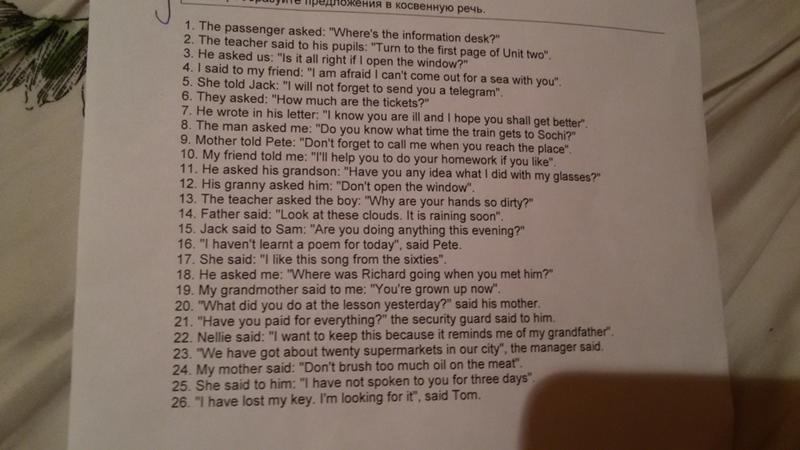 Infantiles do not have a sense of proportion, so they always saw the branch on which they sit. Mature and prudent parasites act more deliberately. They know when to stop to prevent an explosion. They understand that you can’t only train your victim with a whip, you also need to give sugar from time to time. They don't corner the mouse so it doesn't turn into a lion. But infantiles do not understand this, they very quickly become impudent and become unbearable. They either have to besieged or abandoned. Because the infantile parasite is ready to suck all the blood out of the one on whom it parasitizes, it destroys its host, at the risk of destroying itself. A mature parasite always leaves its prey with some blood, because it understands that it depends on it. And infantiles live one day, for the sake of the maximum result here and now they do everything possible, without thinking at all about what will happen next. nine0003
Infantiles do not have a sense of proportion, so they always saw the branch on which they sit. Mature and prudent parasites act more deliberately. They know when to stop to prevent an explosion. They understand that you can’t only train your victim with a whip, you also need to give sugar from time to time. They don't corner the mouse so it doesn't turn into a lion. But infantiles do not understand this, they very quickly become impudent and become unbearable. They either have to besieged or abandoned. Because the infantile parasite is ready to suck all the blood out of the one on whom it parasitizes, it destroys its host, at the risk of destroying itself. A mature parasite always leaves its prey with some blood, because it understands that it depends on it. And infantiles live one day, for the sake of the maximum result here and now they do everything possible, without thinking at all about what will happen next. nine0003
In such cases, lies appear in the family from the very beginning.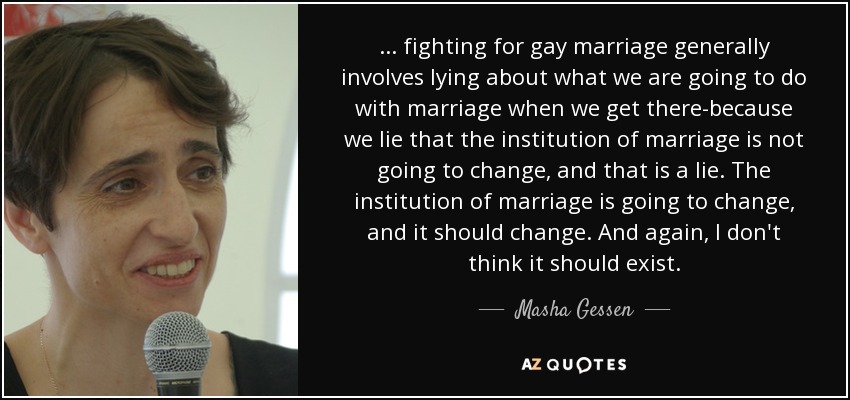 Because the parasite is already marrying with not sincere intentions. He can talk about love, high goals, dream about future children, but in fact he needs someone who can be used. While one flies in the clouds - love, family, children, the other looks at him like a cash cow and gnaws at him until he either eats it completely or breaks his teeth.
Because the parasite is already marrying with not sincere intentions. He can talk about love, high goals, dream about future children, but in fact he needs someone who can be used. While one flies in the clouds - love, family, children, the other looks at him like a cash cow and gnaws at him until he either eats it completely or breaks his teeth.
In such cases, people who have become victims of parasitism often turn to a specialist for help and ask him to help them understand what is going on in their family, they ask them to judge who is right and who is wrong. And the specialist sees that it is not a matter of being right or wrong, and it is not his task to reason. A person just needs to understand that he is being used and that it is for this that they entered into a marriage union with him. And if a specialist sees that a person has a partner - a husband, a wife - a parasite who simply uses him, this person, then nothing will work out here. It will only turn out to delay the time, reducing the appetite of the parasite, frightening him with the fact that he may lose what he has. And so, in order to create human relations, as it should be in a normal family, it is simply impossible. The parasite does not need it and the parasite does not know how to live like that. A person living with a parasite must either constantly fight with him for his interests if he wants to continue living with him, or refuse him and find himself a normal person with the same worldview. Re-educating a parasite is a daunting task. And if we are talking about an infantile parasite or a psychopathic parasite, then it is completely impossible. nine0003
And so, in order to create human relations, as it should be in a normal family, it is simply impossible. The parasite does not need it and the parasite does not know how to live like that. A person living with a parasite must either constantly fight with him for his interests if he wants to continue living with him, or refuse him and find himself a normal person with the same worldview. Re-educating a parasite is a daunting task. And if we are talking about an infantile parasite or a psychopathic parasite, then it is completely impossible. nine0003
Selfishness and fear
Now let's talk about what people try to hide with lies while living a family life. And with its help they hide their egoism and fear. And to this we can add greed, which, however, originates from selfishness. Here people live with each other under one roof, they are husband and wife, they have a common household, common goals may be, common desires. And everything seems to be normal, the family is like a family. None of them is going to parasitize on the other, everything is honest and open, people together do everything that is necessary in family life. This is a normal family, not some kind of ideal, but normal. And there are no serious problems, with the exception of periodic quarrels over household trifles. nine0003
None of them is going to parasitize on the other, everything is honest and open, people together do everything that is necessary in family life. This is a normal family, not some kind of ideal, but normal. And there are no serious problems, with the exception of periodic quarrels over household trifles. nine0003
But one of the partners gets a temptation in life, for example, the prospect of an affair on the side. This person is faced with a choice: to succumb to his egoistic desire and step over a partner by starting this romance or abandon it, for the sake of family well-being. A person decides what is more important for him - “I want” or “I need”. Let's say he is greedy and it's not enough for him that he has, so he goes on about his egoism and starts this affair on the side in order to embellish his life with them. He wants to live in such a way that he has a family and entertainment on the side. He wants to sit on two chairs. Selfishness wins, a person gives in to his desire, ignoring the interests of a partner. But the partner will not like it and problems may arise with him, which is undesirable. And the person understands this. And he doesn't want it. Especially if the family is doing well. He does not want problems with his partner. After all, he understands that a romance on the side is not always something serious and even often something frivolous. And losing a husband / wife because of this entertainment is completely unreasonable. And he starts lying. With a lie, such a person covers up his selfish greed, that is, his weakness, which can lead him to unwanted problems. nine0003
But the partner will not like it and problems may arise with him, which is undesirable. And the person understands this. And he doesn't want it. Especially if the family is doing well. He does not want problems with his partner. After all, he understands that a romance on the side is not always something serious and even often something frivolous. And losing a husband / wife because of this entertainment is completely unreasonable. And he starts lying. With a lie, such a person covers up his selfish greed, that is, his weakness, which can lead him to unwanted problems. nine0003
But often you cannot hide such an awl in a bag, and the deceived partner begins to guess that he is being led by the nose. He becomes suspicious, irritable, shows aggression at the slightest pretext, tries to figure out what is happening, how and why he is being deceived. And then the selfish and greedy partner begins to be afraid. He is afraid that his adventures will be revealed and he will have problems with his soulmate. He is afraid that he may lose his family, he is afraid that he will be condemned by people and that he may even be left alone, since the romance on the side will someday end, and there will be no wife / husband. And such a person begins to lie even more, covering up his fear with lies. The more he fears, the more he lies. And, according to my observations, fear makes a lie completely incoherent. All this may eventually end in an explosion of emotions, after which people will disperse. After all, lying in such cases not only helps, but aggravates the situation. After all, when they lie to you, they do not respect you. That is, you are not considered equal to yourself. nine0003
He is afraid that he may lose his family, he is afraid that he will be condemned by people and that he may even be left alone, since the romance on the side will someday end, and there will be no wife / husband. And such a person begins to lie even more, covering up his fear with lies. The more he fears, the more he lies. And, according to my observations, fear makes a lie completely incoherent. All this may eventually end in an explosion of emotions, after which people will disperse. After all, lying in such cases not only helps, but aggravates the situation. After all, when they lie to you, they do not respect you. That is, you are not considered equal to yourself. nine0003
How to stop lying
How to stop lying in the family, even your own, even your partner? To do this, it is necessary to realize the value of both the partner and the family in the face. Everyone should understand what he has by being married. Some people in such cases say that the value is already obvious, it's just that people don't need it and they lie anyway. Nothing like this. Never will a man jeopardize real value. But people do not always understand what they have and what they can lose. I always object to those who believe that some things should be clear to everyone. Not everyone understands everything. Do not think that what is obvious to you is obvious to others. If you know that trees sway because the wind is blowing, then other people may think otherwise. Just like twice two, not everyone equals four. The value of a family and those things that a person receives from a good husband or a good wife is not clear to everyone. Therefore, it often happens that people begin to appreciate these things only when they lose them. nine0003
Nothing like this. Never will a man jeopardize real value. But people do not always understand what they have and what they can lose. I always object to those who believe that some things should be clear to everyone. Not everyone understands everything. Do not think that what is obvious to you is obvious to others. If you know that trees sway because the wind is blowing, then other people may think otherwise. Just like twice two, not everyone equals four. The value of a family and those things that a person receives from a good husband or a good wife is not clear to everyone. Therefore, it often happens that people begin to appreciate these things only when they lose them. nine0003
Therefore, people need to be explained, shown, told what they have, what their family is valuable for, what it gives them, what their partner is valuable to them. You can give examples with other families where everything is much worse, compare your life with a less successful life, talk about the consequences of losing what you have, and in a language understandable to a person, so that he feels at the level of feelings what it is like when you lose such value. This is either done by a specialist who helps people to improve relations in a family that has begun to be corroded by lies emanating from one or both partners, or by a second spouse who, with the help of such work, admonishes a less reasonable partner who, with the help of lies, decided to put his interests above the interests of family . So even parasitic people can be reasoned with, letting them understand that their well-being depends on the well-being of the family, in which they have much of what they need, and therefore they should think about it no less than about themselves. True, I confess, according to my data, this rarely happens with parasites, it is incredibly difficult for them to explain such things. Parasites practically do not re-educate. But we must try, we must explain until people understand, realize that family values are very important and should not be killed with lies. nine0003
This is either done by a specialist who helps people to improve relations in a family that has begun to be corroded by lies emanating from one or both partners, or by a second spouse who, with the help of such work, admonishes a less reasonable partner who, with the help of lies, decided to put his interests above the interests of family . So even parasitic people can be reasoned with, letting them understand that their well-being depends on the well-being of the family, in which they have much of what they need, and therefore they should think about it no less than about themselves. True, I confess, according to my data, this rarely happens with parasites, it is incredibly difficult for them to explain such things. Parasites practically do not re-educate. But we must try, we must explain until people understand, realize that family values are very important and should not be killed with lies. nine0003
Pay attention to how this is done with children, to whom it is not always possible to explain some things that seem quite obvious to adults. Well, for example, if you invite your child to create his own menu, then he will start eating only what is tasty - all sorts of weaknesses and generally junk food. For him, taste, pleasure from food is important, but he does not think about the benefits at all. Where it leads? To great health problems, and in some cases to death. A small child can overeat the same ice cream, get sick and die. Such cases are known. But does he want it? Do children want to suffer the consequences of such a diet, much less die? Of course not. But they do not understand these consequences, they are not obvious to them. Their brains are not developed in such a way as to calculate the consequences of their actions several steps ahead, and sometimes they cannot calculate anything even one or two steps. They live in the current moment, when they wanted - they got it. And what will happen next, they can not think about it. Precisely they cannot, they are not yet developed enough to think so. They need to explain this, but in such a way that it is clear to them, using the examples that they are able to perceive.
Well, for example, if you invite your child to create his own menu, then he will start eating only what is tasty - all sorts of weaknesses and generally junk food. For him, taste, pleasure from food is important, but he does not think about the benefits at all. Where it leads? To great health problems, and in some cases to death. A small child can overeat the same ice cream, get sick and die. Such cases are known. But does he want it? Do children want to suffer the consequences of such a diet, much less die? Of course not. But they do not understand these consequences, they are not obvious to them. Their brains are not developed in such a way as to calculate the consequences of their actions several steps ahead, and sometimes they cannot calculate anything even one or two steps. They live in the current moment, when they wanted - they got it. And what will happen next, they can not think about it. Precisely they cannot, they are not yet developed enough to think so. They need to explain this, but in such a way that it is clear to them, using the examples that they are able to perceive. What an adult understands, a child, given the level of his development, is not able to understand. Therefore, he needs a different approach to him, and he needs to explain obvious things in a different way. nine0003
What an adult understands, a child, given the level of his development, is not able to understand. Therefore, he needs a different approach to him, and he needs to explain obvious things in a different way. nine0003
This is how it happens with married adults when one of them is simply unable to understand seemingly obvious things, but at the same time agrees that they are important. For example, a person wants a normal family life, wants to be happy in the family, but does not understand that he destroys this happiness with his lies. How many then people who have made a mistake in a relationship, and a stupid, offensive one that could have been avoided, turn to psychologists for help? How many of them regret what they lost because of their actions and the lies they tried to cover up these actions with? And all because they did not understand what they were doing when they made some decisions that harmed their family. And then they lied, lied, lied to cover up all their bad deeds. As a result, the marriage broke up, the negative consequences of the decisions of these people became obvious to them, because they, as they say, felt them in their own skin and only after that they realized what they had done. If they had understood this earlier, if it had been properly explained to them, speaking to them in a language they understood, such consequences could have been avoided. Because they would change their minds in time. nine0003
If they had understood this earlier, if it had been properly explained to them, speaking to them in a language they understood, such consequences could have been avoided. Because they would change their minds in time. nine0003
When I analyze such cases in which people lie to each other or one of the spouses deceives the other, I often find that there is no need for this. That is, people lie to each other without any clear purpose. Also often there is no need for those things for which they can lie to each other. They absolutely do not need any adventures to harm their family because of them, but they do not think about it. It's just that people are used to lying all the time, for example, in previous relationships they had everything too bad, so they lied a lot, and this habit turned into a new, normal relationship. Or they do not understand that they are lying, in fact, in vain, they do not understand that they lose more than they gain because of their lies. And sometimes they don’t get anything at all, but they completely kill the partner’s trust in themselves. If this is explained to them, they will give up such behavior and begin to live a normal life. It's like in business, in trade, when entrepreneurs, sellers deceive customers, more out of habit or for some unconscious motives than out of necessity. If they worked honestly, they would receive many times more. But they don't understand it. Man, he does not always make informed decisions. He often acts by inertia, when either habit or some unconscious motive pushes him to a certain action. He had a chance to deceive - he deceived. And why, he does not understand. Here it is necessary that a person understands his motives. Then he may not lie or lie less often. nine0003
If this is explained to them, they will give up such behavior and begin to live a normal life. It's like in business, in trade, when entrepreneurs, sellers deceive customers, more out of habit or for some unconscious motives than out of necessity. If they worked honestly, they would receive many times more. But they don't understand it. Man, he does not always make informed decisions. He often acts by inertia, when either habit or some unconscious motive pushes him to a certain action. He had a chance to deceive - he deceived. And why, he does not understand. Here it is necessary that a person understands his motives. Then he may not lie or lie less often. nine0003
And one more important point that can prevent lies in the family. It's about the value system. It must be in keeping with family life. For if this is not so, a person will suffer with those for whom the family is not so valuable. Quite often I have to deal with people who get married, but do not profess family values, because they do not understand them, they do not know them properly, they do not imagine what a normal family should be like. And therefore, such people are not ready for the necessary sacrifices that family life will require from them. They get married, get married only because it is customary or because their parents insist, but they themselves do not understand what is good in this, what is valuable to them. These people have learned to live only for themselves, for them the value is their own comfort, their own well-being, they also understand material values - the more money and junk, the better. But in order to live for something and someone else, as family life requires, they don’t know and don’t understand this. And, of course, having entered into marriage, they do not value their new life, they do not hold on to their partner too much, because they believe that if nothing works out with him, they will find another person to live together. They do not invest in the family properly, for them, what is a family, what is not, the difference is insignificant. nine0003
And therefore, such people are not ready for the necessary sacrifices that family life will require from them. They get married, get married only because it is customary or because their parents insist, but they themselves do not understand what is good in this, what is valuable to them. These people have learned to live only for themselves, for them the value is their own comfort, their own well-being, they also understand material values - the more money and junk, the better. But in order to live for something and someone else, as family life requires, they don’t know and don’t understand this. And, of course, having entered into marriage, they do not value their new life, they do not hold on to their partner too much, because they believe that if nothing works out with him, they will find another person to live together. They do not invest in the family properly, for them, what is a family, what is not, the difference is insignificant. nine0003
When you don’t understand family values, you approach relationships in the same way as you would when buying something in a store, firstly, evaluating it only according to parameters that you understand, for example, by packaging and popularity, which is achieved through advertising, and in secondly, not seeing the difference between different products from this category. Well, you didn’t like one product, you choose another, a third one with similar functions, there is still no difference for you, except for the difference in appearance and price. You evaluate this product by the wrapper, and not by the functions that it has. For example, in stores, digital goods are often sold in large cardboard boxes and it seems that something big and heavy lies there, although in reality there is a regular disk or other storage medium. This is done so that people at an unconscious level feel the value of this product according to the criteria already known to them. A big box of eyes rejoices, that's the whole point. Let's say an antivirus program that you can just download in the box looks somehow more valuable, according to some people. If you think about why such a program needs physical packaging, it is not needed at all. But a person who is not trained to appreciate an electronic thing well enough evaluates it by the size of the box in which it is sold, by the beauty of the packaging, by all sorts of bags, pieces of paper, brochures.
Well, you didn’t like one product, you choose another, a third one with similar functions, there is still no difference for you, except for the difference in appearance and price. You evaluate this product by the wrapper, and not by the functions that it has. For example, in stores, digital goods are often sold in large cardboard boxes and it seems that something big and heavy lies there, although in reality there is a regular disk or other storage medium. This is done so that people at an unconscious level feel the value of this product according to the criteria already known to them. A big box of eyes rejoices, that's the whole point. Let's say an antivirus program that you can just download in the box looks somehow more valuable, according to some people. If you think about why such a program needs physical packaging, it is not needed at all. But a person who is not trained to appreciate an electronic thing well enough evaluates it by the size of the box in which it is sold, by the beauty of the packaging, by all sorts of bags, pieces of paper, brochures. How much physical rubbish you get along with a virtual product, and people are happy about it. They can better appreciate what they can feel. So it is in relationships. There are boxes here too. For example, a woman who is not able to assess the inner qualities of a man will evaluate his appearance, pretentiousness, the cost of his car, that is, the same paper box, and not the functionality of the product. And, accordingly, in her family life everything will be the same. She will be able to evaluate her relationship with a man, her life with him, according to the criteria that she is able to understand, from this her idea of \u200b\u200bthe value of what she has will be formed. But family life is not a box, not packaging, not pathos. Only to understand this, you need to see other valuable things. And for the sake of these other valuable things, to value what you have and not to launch a worm into the apple of your family life, resorting to lies. nine0003
How much physical rubbish you get along with a virtual product, and people are happy about it. They can better appreciate what they can feel. So it is in relationships. There are boxes here too. For example, a woman who is not able to assess the inner qualities of a man will evaluate his appearance, pretentiousness, the cost of his car, that is, the same paper box, and not the functionality of the product. And, accordingly, in her family life everything will be the same. She will be able to evaluate her relationship with a man, her life with him, according to the criteria that she is able to understand, from this her idea of \u200b\u200bthe value of what she has will be formed. But family life is not a box, not packaging, not pathos. Only to understand this, you need to see other valuable things. And for the sake of these other valuable things, to value what you have and not to launch a worm into the apple of your family life, resorting to lies. nine0003
Of course, there is also benefit in seeing your partner as a commodity. If a person turns out to be unworthy, vile, vile, it will not be difficult to part with him. It makes no sense to hold on to someone with whom a normal family is still impossible. And not every partner is worthy of building a serious relationship with him. But still, any values, and even more so family ones, require sacrifice. And you have to be ready for them. And for this it is necessary to appreciate both family life itself and the people who are intended for it. And if you look at everyone with the same eyes and evaluate everyone by their packaging, then you will never see this difference between family and non-family people. For the sake of family people, and these are, as a rule, reliable people, you can and should sacrifice your own comfort, your own desires, you must endure some things that are unpleasant in a person, because they are imperfect, they have their drawbacks. To save something, you need to learn to appreciate it. Just as children do not know how to appreciate things that were created or obtained by hard work, they can break an expensive thing without realizing at all what damage they cause, so immature people can break a strong family, spit in the soul of a worthy person, because that they do not understand what they have, they are not ways to separate rare people from everyone else.
If a person turns out to be unworthy, vile, vile, it will not be difficult to part with him. It makes no sense to hold on to someone with whom a normal family is still impossible. And not every partner is worthy of building a serious relationship with him. But still, any values, and even more so family ones, require sacrifice. And you have to be ready for them. And for this it is necessary to appreciate both family life itself and the people who are intended for it. And if you look at everyone with the same eyes and evaluate everyone by their packaging, then you will never see this difference between family and non-family people. For the sake of family people, and these are, as a rule, reliable people, you can and should sacrifice your own comfort, your own desires, you must endure some things that are unpleasant in a person, because they are imperfect, they have their drawbacks. To save something, you need to learn to appreciate it. Just as children do not know how to appreciate things that were created or obtained by hard work, they can break an expensive thing without realizing at all what damage they cause, so immature people can break a strong family, spit in the soul of a worthy person, because that they do not understand what they have, they are not ways to separate rare people from everyone else. nine0003
nine0003
People don't adhere to family values because they simply don't know them. They did not see happy relationships, did not feel warmth and love in the family, did not experience the joy of feeling that they are one family with someone, as one team that appreciates you. They do not understand that they will always have support, support, a reliable rear if they have a good partner - a husband or wife, and, accordingly, a normal family in which, as they say, they do not abandon their own. And strangers will no longer need you as much as those who are your family. Strangers are interested in you as long as there is some benefit from you, as long as you can somehow be used, and then they refuse you as an unnecessary thing. Relations without obligations, which are all frivolous relationships - this is a consumer relationship. Being in such a relationship, it is impossible to be confident in your partner if suddenly something goes wrong in your life. So, one must be able to distinguish one from the other. A family is not just a union of people with a seal in the passport, it is a special trust of people in each other. Appreciating a good kind family is like appreciating art, you need to learn this, you need to enjoy it when you have it, you need to grow up to such an perception of life. And if a person grows up to such a life, he will not harm his family happiness with his lies, just as a true connoisseur of art will not destroy him with his barbaric actions. nine0003
A family is not just a union of people with a seal in the passport, it is a special trust of people in each other. Appreciating a good kind family is like appreciating art, you need to learn this, you need to enjoy it when you have it, you need to grow up to such an perception of life. And if a person grows up to such a life, he will not harm his family happiness with his lies, just as a true connoisseur of art will not destroy him with his barbaric actions. nine0003
A person will not destroy with a lie what he sees as a great value that makes him happy. It is obvious. We blow off the dust particles from the valuable and protect it with all our might. But if a person loses control over himself, and this happens to people from time to time, and to everyone, then he will begin to commit unreasonable acts and cover them up with vile and cynical lies. The natural weakness of a person in the form of his vices can at one fine moment cloud his mind, he will succumb to temptation and begin to destroy the value in the form of family happiness for the sake of momentary joy, for the sake of some fleeting joy. People often act unwisely, succumbing to impulses. And when the mind returns to them, after some time, they regret what they have done. They sit on the ruins of their happiness, clutching their heads with both hands and trying to understand how they could do this with their own hands. nine0003
People often act unwisely, succumbing to impulses. And when the mind returns to them, after some time, they regret what they have done. They sit on the ruins of their happiness, clutching their heads with both hands and trying to understand how they could do this with their own hands. nine0003
Therefore, problems such as the problem of lying in the family, and any other problems related to relationships between people, need regular and detailed discussion and consideration. The more often you talk about something, think, read, the more this topic will penetrate into your subconscious and become stronger there, and not only be fixed on a conscious level. And if you suddenly lose control over yourself, if you cannot control your behavior with the help of your mind, then on an unconscious level you will be able to maintain this control and will not let your impulsive desires lead you to a dead end. And you know how it happens when people say that they understand everything with their heads, but they can’t cope with feelings. And why? But because feelings are thoughts that are unconscious by a person, which affect his actions, but which he is not able to somehow evaluate. Here you have instinctive short-sighted behavior, and all sorts of attitudes once inspired by someone. All this richness of the dark sides of the mind must be diluted with the same unconscious thoughts, but only of a creative nature, which can become a guide to conscious thoughts. And those will already sober the person completely. nine0003
And why? But because feelings are thoughts that are unconscious by a person, which affect his actions, but which he is not able to somehow evaluate. Here you have instinctive short-sighted behavior, and all sorts of attitudes once inspired by someone. All this richness of the dark sides of the mind must be diluted with the same unconscious thoughts, but only of a creative nature, which can become a guide to conscious thoughts. And those will already sober the person completely. nine0003
Therefore, read about such things as described in this article, more and more often. Then, at the moment when the feelings take possession of you, some healthy unconscious thought will stop you and will not allow you to commit a bad deed. You won't understand what, but something will stop you. And without committing bad deeds and not intending to commit them, you will not have to lie to a loved one, thus undermining his confidence in yourself and creating a crack in the foundation of your family happiness.





